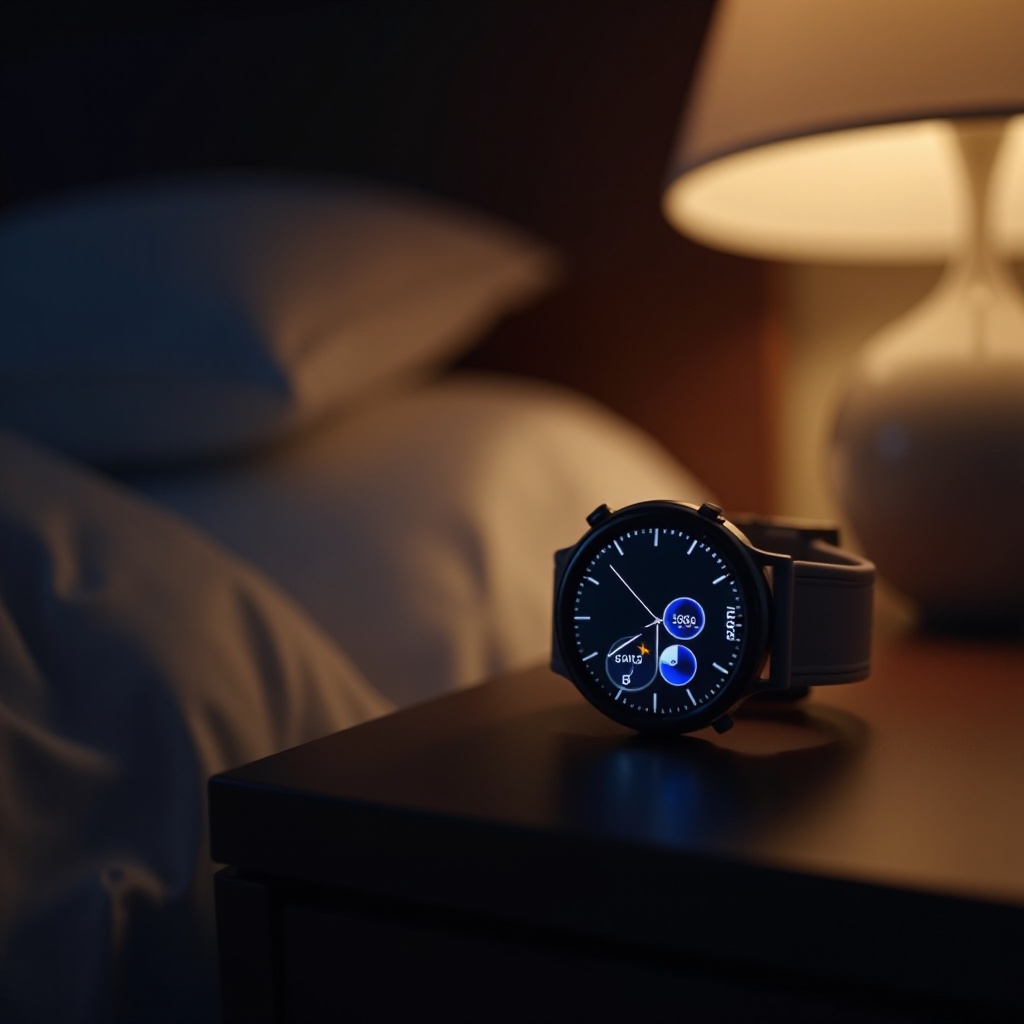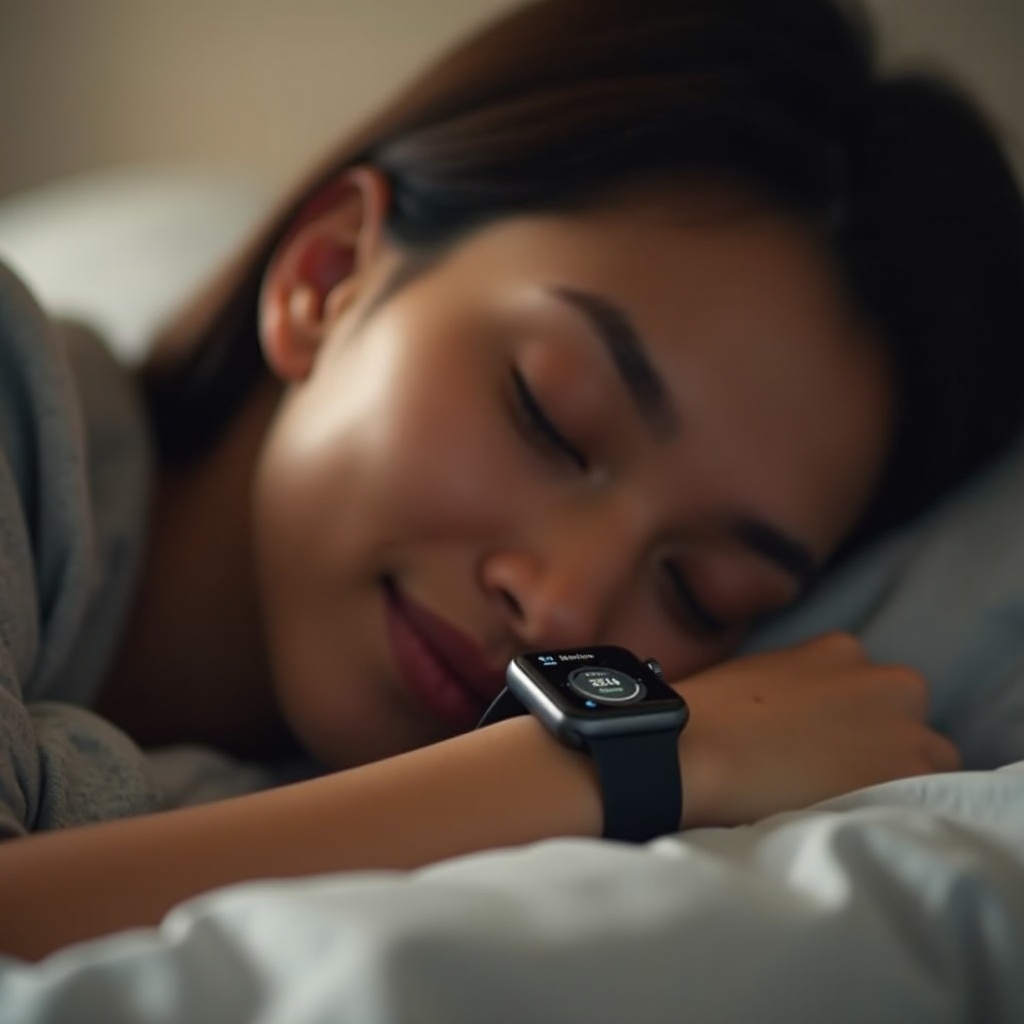Introduction
Smartwatches have become essential gadgets in our tech-driven lives, and one of their most valuable features is sleep tracking. But how exactly does a smartwatch monitor sleep? This article delves into the technology behind sleep tracking, the science of sleep stages, and how smartwatches utilize sensors and algorithms to provide insightful data about your nightly rest. Whether you’re aiming to improve your sleep quality or are simply curious about the technology, this detailed guide will help you understand everything you need to know about smartwatch sleep monitoring.

The Science Behind Sleep Tracking
Sleep is a complex biological process involving different stages, which collectively rejuvenate the body and mind. Understanding these stages is crucial for effective sleep tracking. Sleep is divided into REM (Rapid Eye Movement) and non-REM stages, each important for different aspects of mental and physical health.
Non-REM sleep is further subdivided into light sleep and deep sleep. Light sleep helps in relaxation and body healing, while deep sleep is critical for muscle repair and overall physical recovery. REM sleep, characterized by rapid eye movement, is essential for cognitive functions, including memory consolidation and emotional stability.
Smartwatches track these stages by analyzing physiological signals and movements throughout the night, using sophisticated sensors and algorithms to draw insights into your sleep patterns.
Key Technologies in Smartwatch Sleep Monitoring
Understanding the key technologies that enable sleep monitoring in smartwatches adds a layer of appreciation for this advanced feature. Here, we’ll break down the essential components:
Sensors and Their Functions
Smartwatches are equipped with various sensors that continuously collect data during sleep.
Heart Rate Monitoring
Optical heart rate sensors measure your heart rate variability (HRV). Changes in heart rates are linked to different sleep stages, providing clues about your sleep depth and quality.
Accelerometer Data
An accelerometer tracks movement patterns. By analyzing how much and how often you move, the smartwatch can make educated guesses about whether you are in light sleep, deep sleep, or even awake.
Combined, these technologies offer a comprehensive view of your sleep, providing data that’s useful for improving sleep habits and identifying potential health concerns.
Monitoring Sleep Stages
Accurate sleep tracking depends on the correct identification of different sleep stages. Let’s look closer at how smartwatches distinguish between these critical phases:
Deep Sleep
Also known as slow-wave sleep, this stage involves the lowest levels of physical movement and heart rate. Deep sleep is pivotal for physical recovery and immune system function.
REM Sleep
Characterized by rapid eye movements, REM sleep is vital for cognitive functions. During this stage, your heart rate and brain activity become more erratic.
Light Sleep
This stage acts as a transition period and constitutes about half your sleep cycle. It is easier to wake from this stage than from deep or REM sleep.
By differentiating these stages, smartwatches help you understand your sleep quality, providing specific insights for improvement or medical consultation if necessary.
Data Collection and Analysis
The magic behind smartwatch sleep tracking is the sophisticated data collection and analysis processes they employ. Let’s break down how this works:
Data Collection During Sleep
Smartwatches collect data on heart rate, motion, and even ambient light through built-in sensors. This data is continuously recorded and sent to the smartwatch’s CPU for initial processing.
Machine Learning Algorithms
Raw data collected by sensors is interpreted using machine learning algorithms. These algorithms are trained to recognize patterns that typify different sleep stages. They learn from large datasets and are continually perfected to enhance accuracy.
Through this advanced data analytics, smartwatches provide a detailed breakdown of your sleep cycle, giving actionable insights to improve your sleep patterns.
Benefits and Limitations of Smartwatch Sleep Monitoring
While smartwatch sleep tracking can be highly beneficial, it isn’t without its drawbacks. Here are some pros and cons:
Health Insights and Improvements
Smartwatch sleep monitoring provides valuable insights into your sleep habits, helping you identify patterns that promote better sleep hygiene. They can also suggest lifestyle changes, such as adjusting bedtime routines, to improve sleep quality.
Identifying Sleep Disorders
Consistent tracking can help identify irregularities that may signify sleep disorders, prompting timely medical consultation and intervention.
Potential Inaccuracies and How to Mitigate Them
Despite advances, smartwatches may sometimes produce inaccurate data due to factors like improper fit, external vibrations, or algorithm limitations. Mitigating these inaccuracies involves ensuring a snug fit, calibrating the device, and possibly consulting a healthcare provider for professional sleep studies.

Enhancing Your Sleep Monitoring Routine
To get the most accurate data from your smartwatch sleep monitoring, consider these tips:
Tips for Accurate Sleep Tracking
- Ensure your smartwatch is properly fitted.
- Calibrate the device according to the manual’s instructions.
- Maintain a consistent sleep schedule for more regular data patterns.
- Avoid caffeine and heavy meals before bed to prevent disruptions.
- Use the same wrist consistently to avoid data discrepancies.
Recommended Smartwatch Models with Sleep Tracking Features
Several smartwatches excel at sleep tracking:
- Apple Watch Series 6: A good all-rounder with reliable sleep tracking.
- Fitbit Sense: Known for its advanced sleep monitoring sensors.
- Garmin Venu Sq: Offers detailed sleep analysis and overall health monitoring.
Conclusion
Smartwatch sleep monitoring is a fascinating intersection of technology and health, providing valuable insights to enhance your sleep quality. By understanding how these devices work and the data they provide, users can take proactive steps to improve their sleep habits, ultimately enriching their overall well-being.
Frequently Asked Questions
How accurate are smartwatches in tracking sleep?
While generally reliable, smartwatch accuracy can vary depending on the model and how the device is worn. It’s best to refer to detailed reviews and perhaps consult a healthcare provider for critical issues.
Can sleep tracking with a smartwatch replace a medical sleep study?
No, while smartwatches provide beneficial data, they cannot match the comprehensive analyses that medical sleep studies offer. For diagnosing sleep disorders, always consult a medical professional.
What should I do if my smartwatch shows poor sleep quality?
If your smartwatch consistently indicates poor sleep quality, consider revisiting your sleep hygiene practices. Also, consulting a healthcare provider may help identify any underlying issues.

